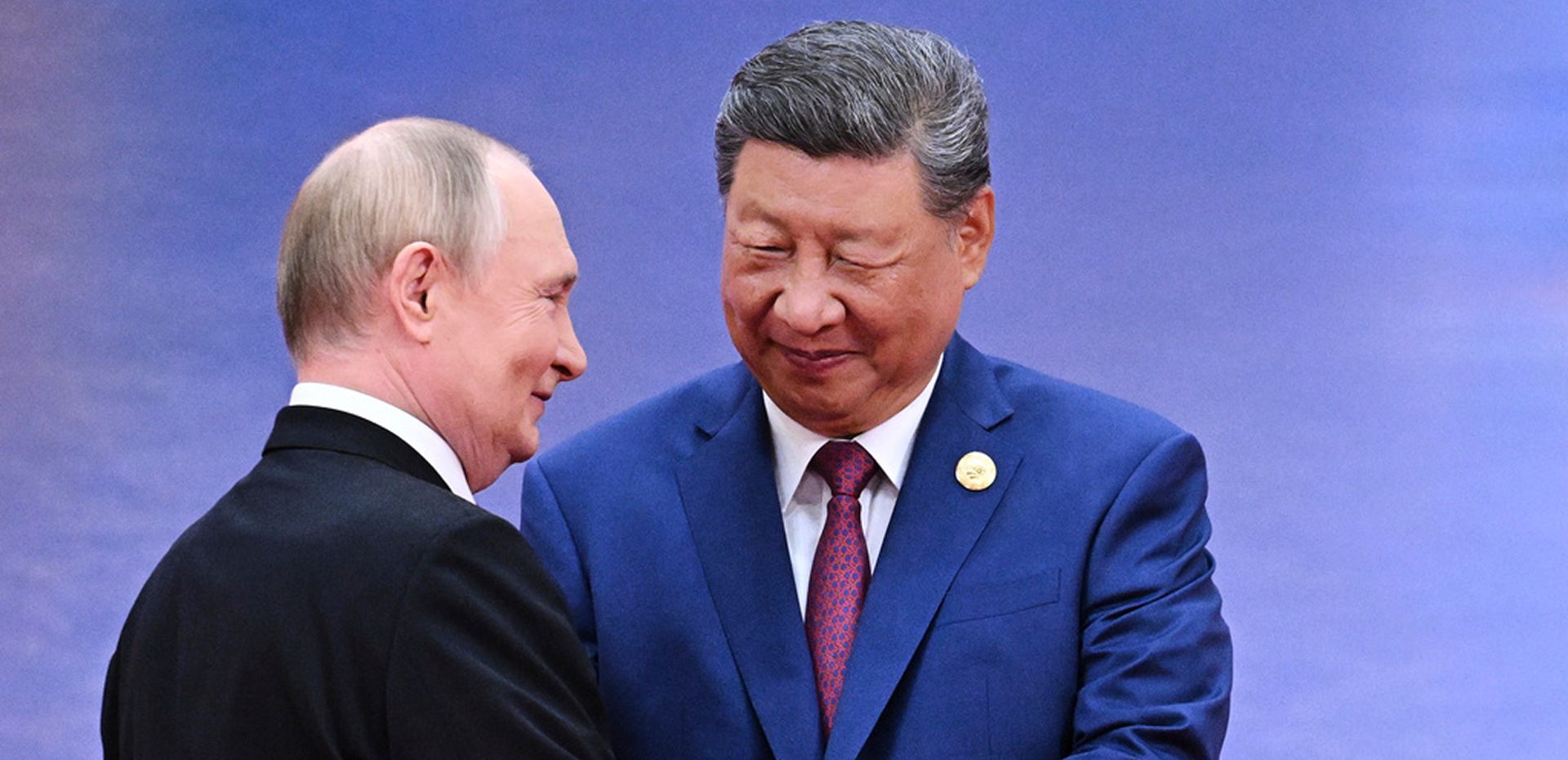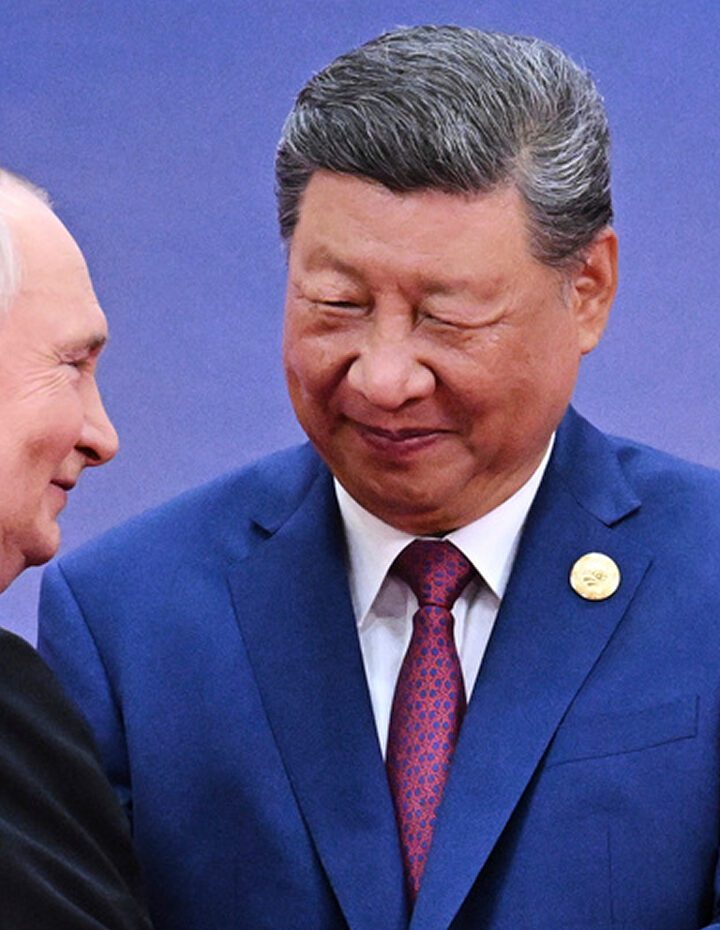Despite public declarations about their strategic partnership and displays of equality within the Shanghai Cooperation Organisation (SCO), the relationship between Russia and China remains fundamentally asymmetrical. Economic cooperation is largely confined to exports of raw material from Russia and limited technological exports from China, with minimal investment. Among the Russian elite, concern is growing over Beijing’s hidden ambitions, including suspicions of espionage and efforts to expand its influence in Central Asia at Russia’s expense. Public sentiment, by contrast, increasingly views China as a strong partner and a viable alternative to the West, albeit a culturally distant one.
Moscow in Beijing’s shadow at the SCO Summit
The SCO summit held in Tianjin on 31 August‑1 September 2025 was the largest in the organisation’s history. It brought together leaders of more than 20 states and representatives of eight international organisations, concluding with the Tianjin Declaration. The document set out the SCO’s priorities for the coming years, including the establishment of the SCO Development Bank, the expansion of economic cooperation, and agreements on energy, artificial intelligence, and drug control.
At the same time, President Xi Jinping used the summit platform to present the Global Governance Initiative, effectively asserting China’s claim to be the principal architect of a new international order and offering an alternative to the post-war system dominated by the United States.
President Vladimir Putin endorsed Xi’s agenda in his speech, but his rhetoric sounded weak by comparison. While Moscow continues to insist that the SCO is a club of equals, where it remains one of the centres of power, in practice, the initiative and financial resources lie with Beijing.
For the Russian elite, the SCO retains symbolic importance as a marker of belonging to a non-Western world. Its achievements are seen as steps towards a multipolar order in which Russia ostensibly stands alongside the world’s largest economies. Relations with China and India remain central in this dialogue, with Putin seeking to cast himself as a necessary intermediary between Beijing and Delhi.
At the same time, political pressure was directed at states in Russia’s traditional sphere of influence. While the decision to block Azerbaijan and Armenia from joining the SCO was formally taken by India and Pakistan, this may reflect behind-the-scenes efforts by Moscow to signal disapproval of their rapprochement with the United States during the signing of the Trump-brokered memorandum to end the Karabakh war.
For Russian society, however, the SCO is barely visible. According to the Public Opinion Foundation (FOM), only 2 per cent of citizens described the previous summit as important, and the latest meeting is unlikely to have drawn greater interest.
The Russia-China partnership
Against the backdrop of unity displayed at the SCO summit, the growing inequality between Russia and China is striking. China’s GDP is five and a half times larger than Russia’s. Cooperation is largely confined to Russian energy exports and Chinese exports of goods and equipment, which are essential for Russia due to western sanctions. Yet Beijing avoids broadening its economic relationship with Russia to include investment and technology transfer, reinforcing one-sided dependence.
Although China has been Russia’s largest trading partner for several years, accounting for a third of its foreign trade, Chinese investment remains limited. Despite Putin’s declarations of a ‘comprehensive partnership and strategic interaction’, the last major investment project above USD 500 million involving technology transfer was the Great Wall Motor plant in Tula Region, which was initiated in 2014 and launched in 2019.
China exports a wide range of equipment to Russia, from mobile phones and computers to machine tools and construction machinery, but refrains from sharing advanced technology. Russian companies gain access to finished products, not to designs, core components, or know-how that would allow localisation. This reflects Beijing’s broader strategy: promoting Chinese industrial expansion while avoiding the creation of competitors.
Over the past three years, however, perceptions of this dependence have shifted. Chinese firms, seeing new opportunities in the Russian market, have begun competing with each other, offering more advanced and higher-quality products. Chinese goods, from consumer electronics to industrial components, are now firmly embedded both in businesses and in daily life. Russian consumers have become accustomed to them, learning to navigate their features and distinguish quality levels. Even if Western sanctions are lifted, some Chinese products may retain their market share. In more technology-intensive fields, such as oil and gas equipment, Russia would most likely return to Western partners once access is restored.
Divergent attitudes towards China
The limits of economic cooperation are shaped not only by structural imbalances but also by political considerations. Among the elite, particularly within the security services, suspicion towards Beijing persists. Despite official rhetoric, China is seen as a potential threat in sensitive areas ranging from cyber security and data leakage to industrial and military espionage.
According to an internal Federal Security Service (FSB) document cited by the New York Times, the Russian security services suspect China of systematic intelligence activity inside Russia, from recruiting scientists and seeking access to military technologies to gathering information on Russian operations in Ukraine. The FSB has also expressed concern that China may conduct large-scale espionage under the guise of academic and commercial projects, including in the Arctic and in strategic industries.
These fears are reflected in a surge of treason cases: their number has risen sharply since 2022. Most are heard behind closed doors, making analysis difficult, but open sources mention at least 43 cases of scientists prosecuted for passing data to third countries, including no fewer than ten linked to suspected cooperation with China.
By contrast, public opinion on China is increasingly favourable. In 2024, 65 per cent of Russians described China as a ‘friendly state’, compared with just over 10 per cent in the early 2000s.
In Russian public opinion, China is now seen as a powerful, technologically advanced country and as an especially important strategic partner during a period of confrontation with the West. Connections established through trade, culture, and tourism have created a consistently positive image. Yet this sympathy is accompanied by caution: the Chinese model of development commands respect but is perceived as unattainable and alien. Closer ties with China are viewed less as a deliberate choice than as a necessity born of isolation.

